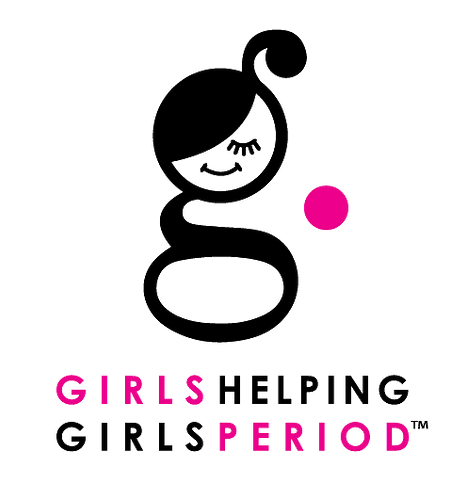Introduction
While it is widely recognized that toilet paper must be available in all public restrooms, in 2024, it is still, by far, exceptional to find disposable menstrual products freely available. Whether the discussion is focused on schools or workplaces, the lack of access to these necessities used to manage an essential bodily function is partly a result of doing things the way they’ve always been done. Arguments about personal responsibility and increased costs may be invoked that are not in keeping with any collective recognition that toilet paper is directly comparable and always available. Those who menstruate cannot control when their cycles begin. While research is minimal, there is growing evidence that not having readily accessible products in all spaces affects behavior, perception, and even the bottom line.
Around the world, lawmakers are starting to take notice of advocacy efforts to create menstrual equity, and several governments have mandated products be available to varying degrees. In Canada, all federally regulated workplaces will have to provide free menstrual products at the end of 2023. In 2022, Scotland was the first country to offer pads and tampons for free to anyone who needs them. All New Zealand schools offer free menstrual products after a 2021 mandate.
In the United States, a push to bring workers back to the office following the COVID-19 pandemic has forced many employers to make their spaces more attractive. That, combined with a younger generation that often demands a company articulate and live its values, has brought attention to creating inclusive spaces, starting with restrooms.
Existing research has shown that the stigma surrounding periods can profoundly affect workers. A large-scale Dutch study published in 2019 found an average of 8.9% days of “presenteeism,” or lost productivity, due to menstrual pain. When women called in sick because of their periods, only 20% admitted the reason. If being in the workplace at least part of the time is critical, the results of a Free the Tampons Foundation study support the need to meet workers’ basic needs when they are there. Their 2013 study showed that 86% had started their period unexpectedly in public, and 34% went home immediately to get supplies.
Background
Girls Helping Girls. Period. (GHGP) began as a small project by two young South Orange, NJ sisters, and their mother after they heard there were students at their local middle school who were regularly missing class and school days for lack of menstrual products. Their project to address period poverty turned into a much larger effort and a non-profit in 2016; the organization has donated millions of items across NJ and surrounding states. Additionally, GHGP addresses menstrual equity by advocating for policy and law changes that mandate free period products in bathrooms. GHGP has been partnering with the National Council of Jewish Women-Essex section for several years, assisting with efforts to provide period products for clients in need.
GHGP was interested in finding out if small donations of pads and tampons to local businesses in Essex County, NJ, would be welcomed by staff and clients. GHGP and NCJW-Essex teamed up to present the idea to business owners/managers and place products in bathrooms along with a survey accessible through a QR code. Fourteen businesses participated, including restaurants, nail salons, a movie theater, several gyms, and community centers. All period products were available in bathrooms that were accessible to both clients and staff. The project ran from the end of January 2023 through mid-May 2023, with 177 respondents completing the survey.
Findings
The survey shows the simple act of providing free menstrual products has an impact on how people feel about a business overall. 98% of respondents said they “feel more positively toward this business because it has free period products available” for their use.
One-third, 33% of those who took the survey, say they took a pad or tampon; two-thirds of people who responded felt positive about the business even though they did not use a provided menstrual product.
Conclusions
Not being able to address an unexpected need for a menstrual product can result in panic, embarrassment, or having to leave a social or work situation immediately to tend to the matter. Having easily accessible, free-period products can mean an employee or client’s ability to carry on with their day, avoiding a loss of sales or productivity. One respondent said, “Thank you so much for having menstrual care products available. I unexpectedly got my period and would have needed to skip my swim if it weren’t for having tampons available.” Another mentioned the inconvenience of having to leave the restaurant, saying, “This is wonderful! I really needed a tampon, and I didn’t want to go to the store and buy a whole box.”
One-third of the 15 businesses that began the pilot committed to continuing to supply menstrual products in their bathrooms for staff and clients. The others either chose not to make that commitment, did not respond to repeated requests for information about their intentions, or explained the decision rested with a parent company.
The commitment to providing easily accessible menstrual products in the workplace and business bathrooms is less of a financial burden than most believe.
- An estimate from Hospeco, a supplier of personal care products for businesses, suggested an annual investment of $50-$200 could allow a small business of the size in this study an adequate amount of disposable period products for visitors and staff.
- Claire Coder, Founder and CEO of Aunt Flow, an organic period product supplier, says, “It is roughly $2-4 per female employee per year to offer free period products in the bathrooms.”
- TOP-The Organic Project offers bulk pricing for businesses that are a fraction of the retail price: $250 for 2500 tampons, $250 for 1200 pads.
Given the extensive budgets many businesses allot to marketing, perhaps the cost of pads and tampons in restrooms is a very small price to pay for customers and employees to “feel so welcome.”


